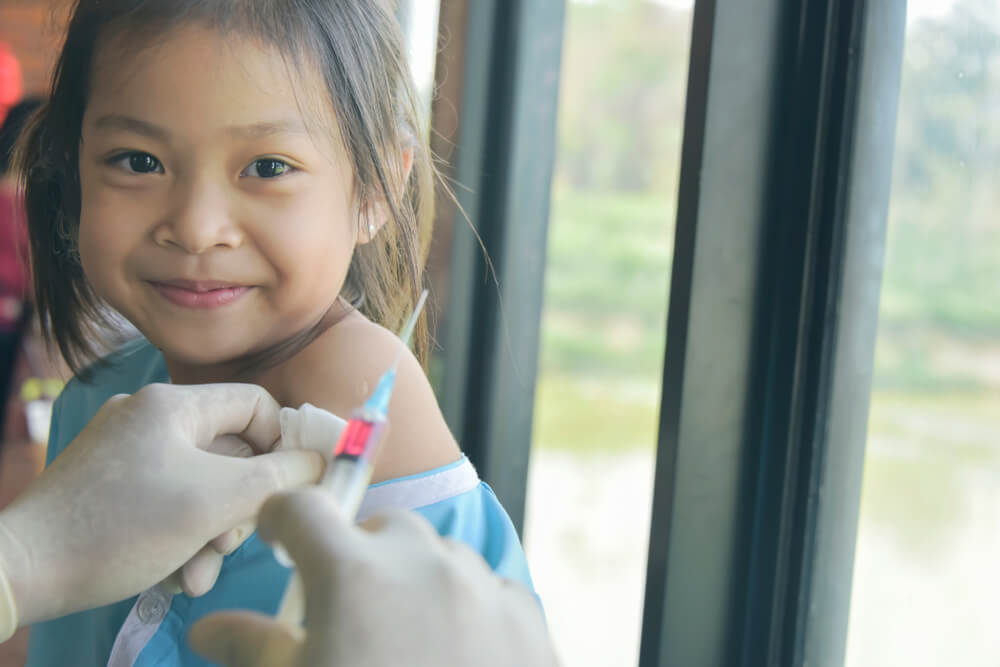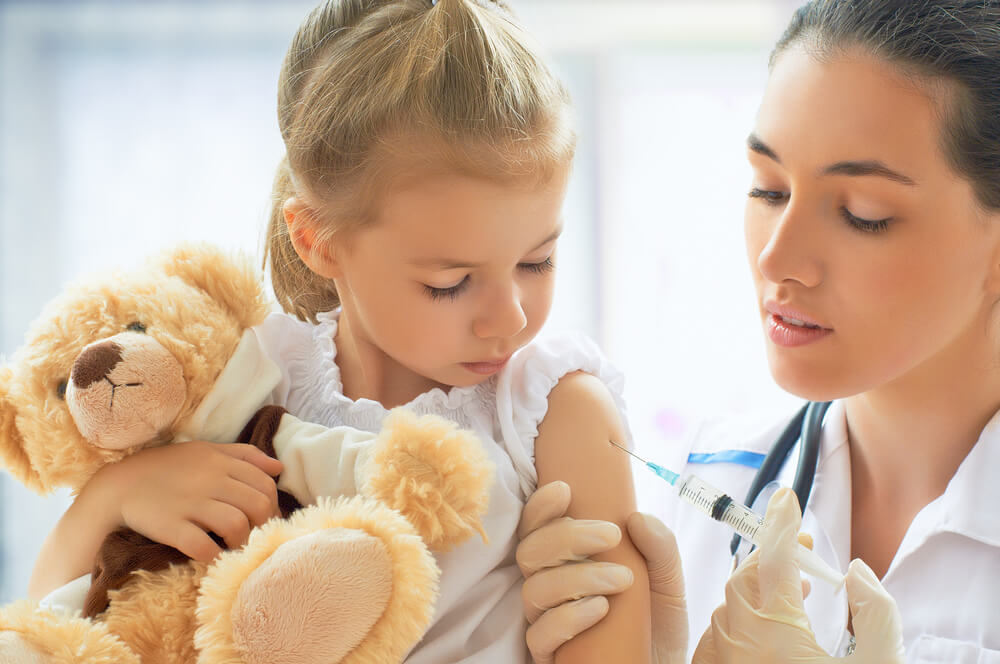Vaccines are one of the best ways to protect your child’s health. Childhood vaccines prevent your child from catching and spreading serious illnesses that could cause lifelong complications or death. In the United States, childhood vaccinations have drastically reduced the incidence of measles, mumps, rubella, pertussis, polio, and diphtheria. Many new parents wonder why their children need vaccines, why there are so many vaccinations, and whether or not vaccines can cause any harm. We offer thorough immunization education for parents so that you can understand the benefits of getting your child fully vaccinated against highly contagious diseases.
How Vaccines Work
Vaccines stimulate the immune system to make antibodies that can destroy a particular type of bacteria or virus. Once your children have antibodies, they can fight that germ if they get infected by it. This immune system response works for a long time. The vaccines trigger antibody production by using an inactivated germ or part of a germ. Exposure to these particles activates the immune system, triggering the antibody production process.
Types of Vaccines
There are two types of vaccines. These are active and passive. An active vaccine is one that uses a weakened or dead form of the bacteria or virus to trigger an immune system response. A passive vaccine is one that contains antibodies collected from the serum of a pool of donors. For example, hepatitis B immune globulin is a passive vaccine that confers temporary immunity to newborns if their mother tests positive for hepatitis B. We provide active vaccines to our patients, but your children may need a passive vaccine if they have an immune system disorder or they contracted a contagious disease at birth or during their first few weeks of life. During our new parents vaccine education sessions, we can answer your specific questions about which types of vaccines your children will get.

Vaccines Prevent Contagious Diseases
When babies are born, they have little to no immunity to germs. As soon as they enter the world, they’re exposed to thousands of different types of bacteria and viruses. It only takes one cough or sneeze from an infected person to cause a newborn to get sick with a contagious disease, such as pertussis. Because babies don’t have the immunity of their own, they benefit from the active immunity provided by vaccinations. Many parents get advice from well-meaning neighbors, family members, or friends. However, we recommend that you educate before you vaccinate. We’re always available with accurate, scientific, and data-driven information to show you how effective vaccines are at preventing babies and children from serious contagious diseases.
Babies Get Exposed to Germs More Than You Realize
A simple outing could expose your baby to germs from all over the world. A visit to the grocery store may result in you and your baby encountering the germs of hundreds of people shopping at the same time as you. It just takes one person who traveled to a place with an active pertussis outbreak to cough on a shopping cart or the credit card payment kiosk. When babies touch contaminated surfaces or breathe the air, they’re exposed to everyone’s germs. Grandparent visits, contact with older siblings who go to school, or trips to the store can all result in your child getting exposed to diseases. As part of our immunization education for parents, we explain how bacteria and viruses in the community can infect your baby.
Protection for People Who Can’t Get Vaccinated
Some people have an immune system disorder or allergy that prevents them from being able to get vaccinated. By vaccinating your child, you’re protecting the people who aren’t able to get vaccinated. This is accomplished through herd immunity. Herd immunity happens when an area of people is immune to a disease. That immunity can come from survival from the disease or vaccination. It is much safer to achieve herd immunity through vaccination than exposure to a disease.
Lower Your Child’s Risk of a Disability or Premature Death
In the past, contagious diseases were a leading cause of disability and death among children. For example, smallpox killed tens of millions of people every year, and it was a threat to human health all over the world until the 1970s when a massive vaccination campaign resulted in its eradication in 1980. Measles can cause deafness, pneumonia, or encephalitis. About one out of 20 children infected by measles develops pneumonia, and about one to three out of every 1,000 children infected with measles die. Getting your children vaccinated protects them against these serious or even deadly complications.

Germs Are Hardy
While some germs quickly die when they’re outside the human body, others are quite hardy. For example, the hepatitis B virus can live on surfaces for up to seven days. If you placed your baby on a table where a person with hepatitis B left a minuscule amount of blood, your child could get infected. For example, if you use the changing table to change your baby’s diaper in a restaurant’s bathroom, your child could pick up hepatitis B from that changing table. That’s why your children need the hepatitis B vaccine right after birth and many more vaccines within their first six months of life.
Prevent Common Childhood Illnesses
Your baby needs vaccines to protect against common childhood illnesses that can have lasting effects. These illnesses are highly contagious and easily spread from one child to another, especially in group settings. Daycare, nurseries, and play dates can all spread germs to your child. As part of our new parents vaccine education, we explain the vaccine schedule we follow and why it’s important to stick with it. Doctors and scientists developed this vaccine schedule over decades and use the best scientific evidence for the correct timing of the vaccinations. Your children should receive most of their vaccinations between birth and age two. Some vaccines require boosters during childhood and into adulthood. These boosters give the immune system a gentle reminder of how to make antibodies.
Lower Risk of Illnesses During Adulthood
It’s difficult to think of your child becoming a grownup. However, vaccinating your children now will reduce their risk of serious illnesses or premature death when they’re an adult. For example, chronic infection from hepatitis B develops in 90% of babies infected with the virus. Cirrhosis and liver cancer are the most common complications of chronic hepatitis B infection, and these disease processes can begin when people are in their 20s or 30s. When we provide vaccination education tailored for parents, we go over the ways vaccinating your baby will help them have a healthier adulthood.
Now we’d like to hear from you. Do you know anyone who’s suffered from a vaccine-preventable disease? To learn more about the childhood vaccines we offer and the vaccine schedule we follow, give us a call today.




